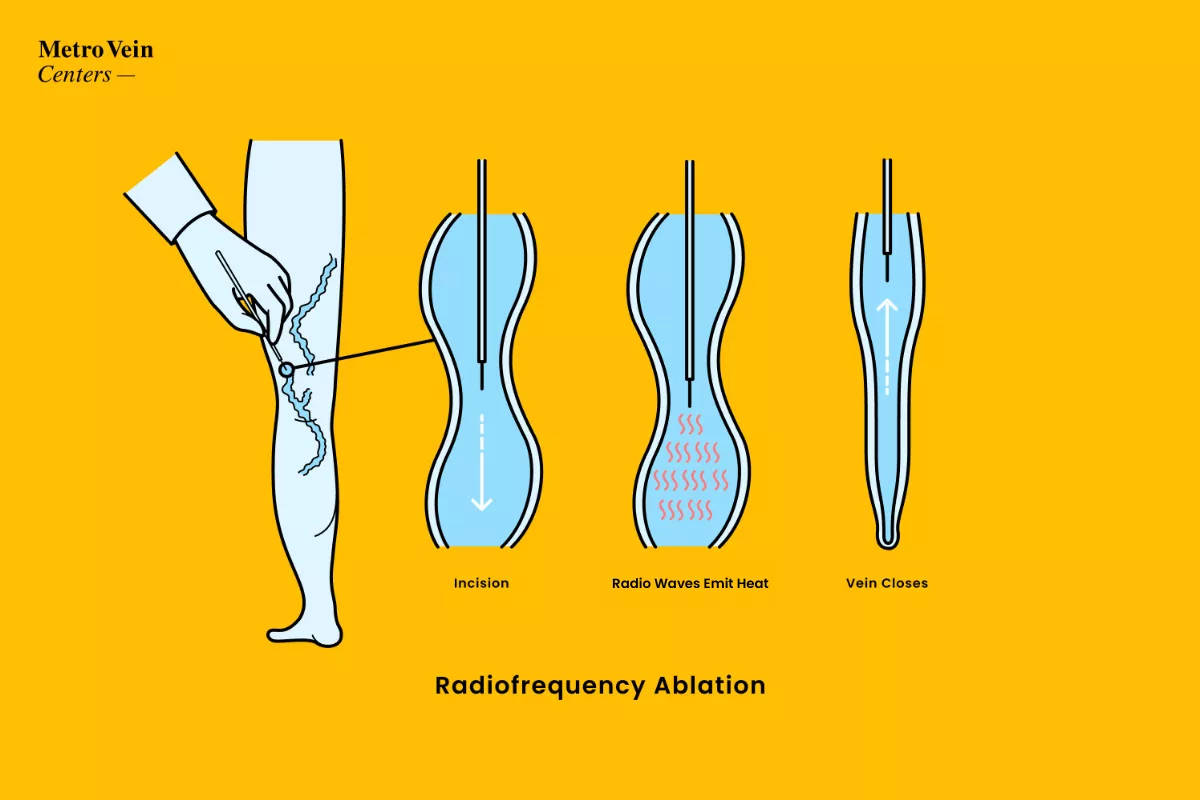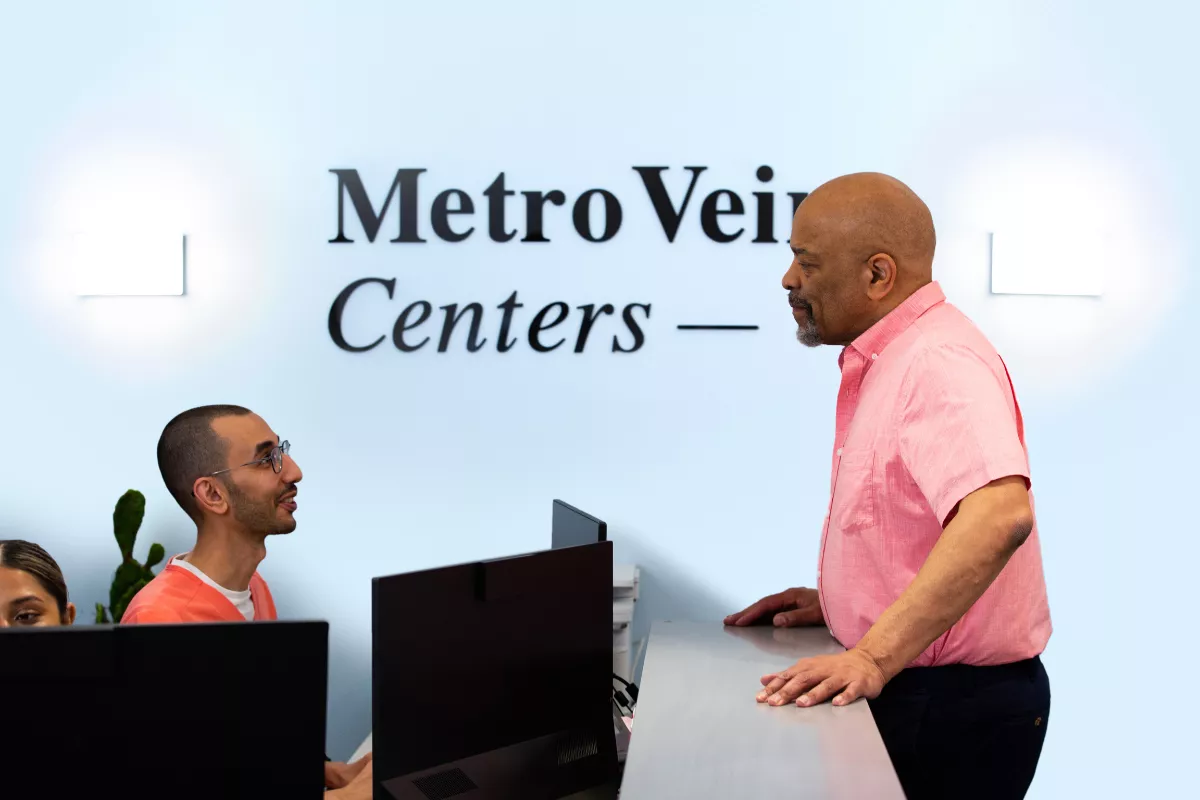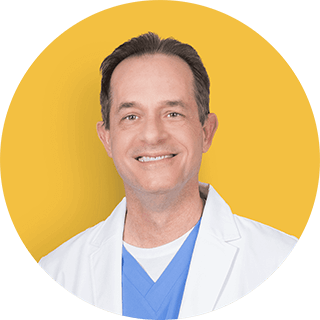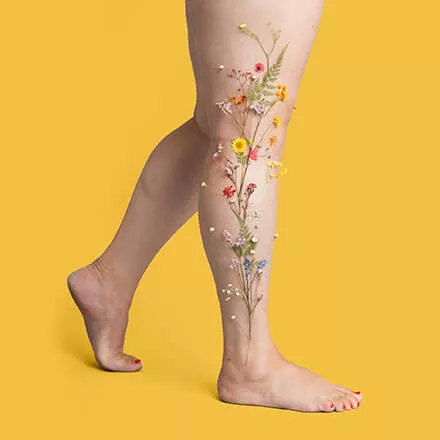Vein doctors recommend radiofrequency ablation (RFA) as one of their top choices for quick, efficient, FDA-approved varicose vein treatment. Although internet articles and social media may seem more excited about sclerotherapy, vein specialists know radiofrequency ablation offers a wealth of benefits, including improvement in a wide range of medical symptoms, pinpoint-accurate treatment of problem veins, and little to no downtime.
Let's talk about exactly what radiofrequency ablation is, how it works, and how it treats varicose veins in the legs.

Why choose radiofrequency ablation?
Radiofrequency ablation is often recommended as the first step in treating chronic venous insufficiency, a medical condition that can lead to painful or uncomfortable varicose veins if left untreated. When done correctly by board-certified vein doctors, radiofrequency ablation treats the area of concern within a diseased vein that causes poor circulation and the backflow of blood and is ideal for smaller varicose veins that are too large to be treated via sclerotherapy (which can be used successfully on smaller varicose veins and tiny, web-like spider veins).
When large, deep truncal veins are not working properly, smaller veins can become affected as the body struggles to maintain healthy blood flow. This can lead to visible varicose veins near the surface of the skin. The underlying cause of varicose and spider veins is poor circulation in deep veins, causing twisting and bulging when blood pools on the surface. Think of the veins in your legs like the trunk of a tree and its branches; if the trunk is unhealthy, the branches will be unhealthy. So if doctors identify potential chronic venous insufficiency, they may recommend radiofrequency ablation treatment to address the problem at its source, regardless of whether you see any problem on the surface.

How does it work?
Radiofrequency ablation uses pulsating radiofrequency energy to improve symptoms of vein disease in the leg veins under the surface of the skin. During the treatment, a vein specialist administers localized numbing to the area surrounding the varicose vein being treated. Using ultrasound technology to locate the diseased vein in your leg, your vein doctor inserts a tiny tube into your unhealthy vein. Using radiofrequency energy, a pulsating heat, the unhealthy valves in the vein are sealed.
As a result, blood will reroute through your healthier veins and blood circulation will improve. Your body will reabsorb the unhealthy vein, permanently removing the varicose vein.
The process from start to finish usually takes less than 30 minutes, and patients can walk out of the clinic immediately after they receive treatment. Following radiofrequency ablation, your vein specialist may recommend sclerotherapy or another varicose vein treatment depending on the size and type of veins you need treated.

Post-treatment care
Minimally invasive vein therapies such as radiofrequency ablation are state-of-the-art ways to treat varicose veins right in a medical office. This is significantly advanced from vein surgery (such as vein stripping) that requires a hospital stay and can leave patients unable to walk, stuck on bedrest, or taking extended periods of time off work for their recovery.
After a radiofrequency ablation, patients are able to walk or drive themselves home immediately after their appointments and there is little to no downtime! There is no waiting period to wake up from anesthesia, no requirement for someone else to drive home, and no prescription painkillers.
Post-treatment, your vein specialist will provide you with detailed aftercare instructions and a compression stocking to help reduce swelling and improve circulation. Most vein doctors recommend three days of compression after treatment, but this varies from patient to patient based on their unique symptoms and lifestyle. Consult with your vein doctor directly for your specific aftercare recommendations.

What are the side effects of radiofrequency ablation?
There are no stitches needed following radiofrequency ablation treatment, and patients are able to return to their normal activities right away without limitations on their movement. Patients may experience some temporary bruising following treatment, and although infrequent, there may be temporary numbness, itching, sensitivity, burning, or swelling. Some patients opt to take an over-the-counter pain medication or apply a medicated cream such as Arnicare® to hasten healing, but this is not required. Most patients simply walk out with a small bandage and continue their day!

Is radiofrequency ablation right for me?
As you research solutions for your varicose veins, you may find yourself wondering whether radiofrequency ablation would work for your specific concerns.
Generally, a good candidate for radiofrequency ablation is someone with large, untwisted varicose veins, because the straighter they are, the easier it is to guide the catheter around the treatment site. (This is similar to the ideal endovenous laser ablation candidate). Ultimately, your vein specialist will determine the best varicose vein treatment option for you -- based on the findings of your leg ultrasound and taking into account your vein history, age, symptoms, and the type of veins that need treatment.
A quick recap of the benefits of radiofrequency ablation:
- Precision: Because they are ultrasound-guided, vein doctors have an inside view of the area they're treating, which allows for incredibly controlled administration of heat energy.
- Minimal discomfort: With localized numbing, patients do not feel the heat as it heals their veins. This treatment is minimally invasive, so there is no need to be "put to sleep" with anesthesia.
- Time: In as little as 30 minutes, proper circulation is restored and your symptoms will improve over the coming days.

Where to get radiofrequency ablation treatment
Radiofrequency ablation is one of several minimally invasive vein treatments offered at Metro Vein Centers' 30+ vein clinics. After your free vein evaluation, your vein specialist may recommend radiofrequency ablation to gently seal unhealthy, uncomfortable varicose veins and redirect blood flow through healthy veins in your legs.
Our board-certified vein specialists in New York, New Jersey, Texas, Connecticut, and Michigan customize care plans for each patient, carefully catering the approach to match each patient's unique symptoms and vein concerns. We offer free vein evaluations and accept over 200 insurance plans for our treatments, with 97% of treatments covered! We're here to help. Give us a call at 866-353-7051 to learn more!
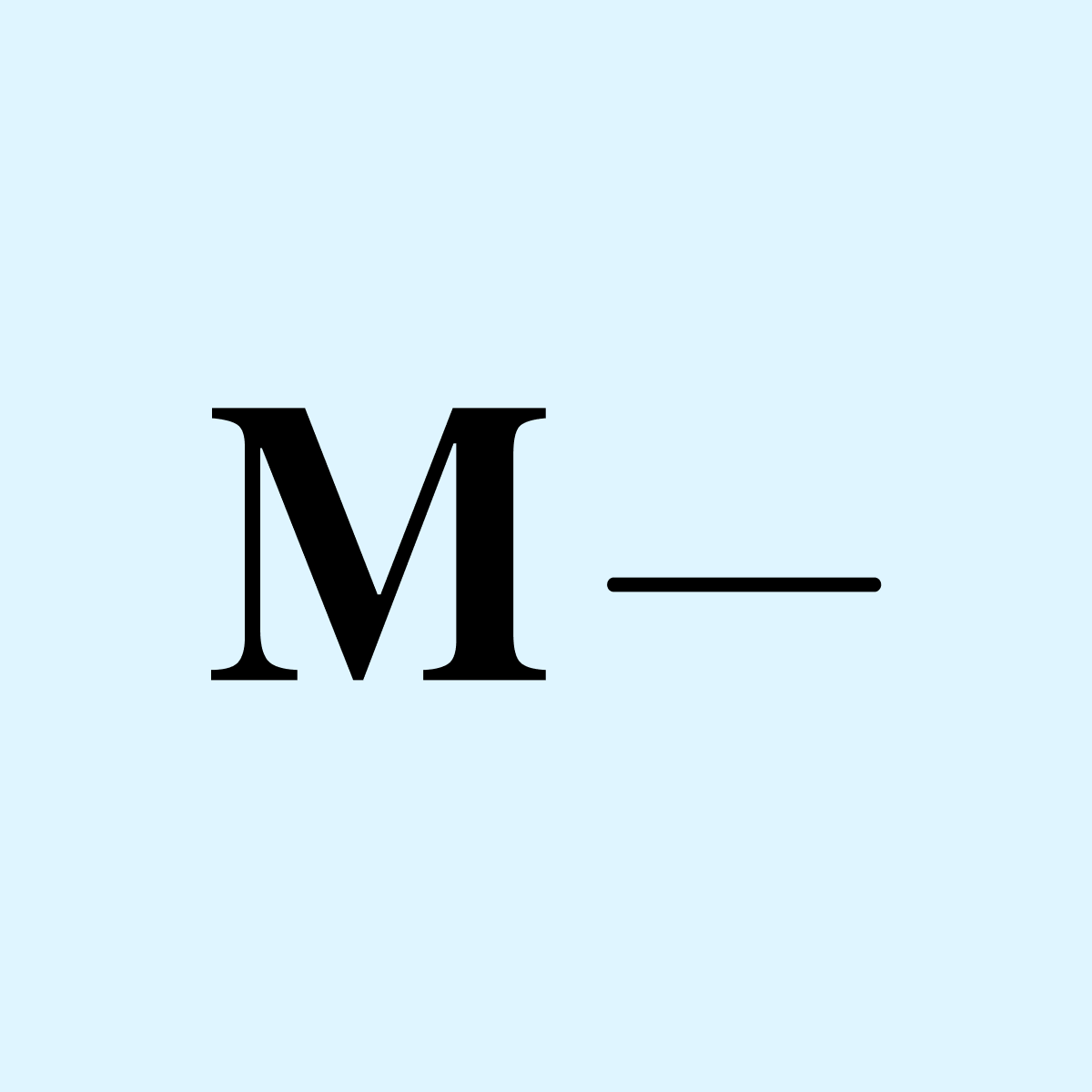
Metro Vein Centers Editorial Team
From vein care 101 to treatments, the Metro Vein Centers blog offers patients everything they need to know about vein health.

Trusted insight from the nationally accredited, board-certified vein doctors at Metro Vein Centers.


